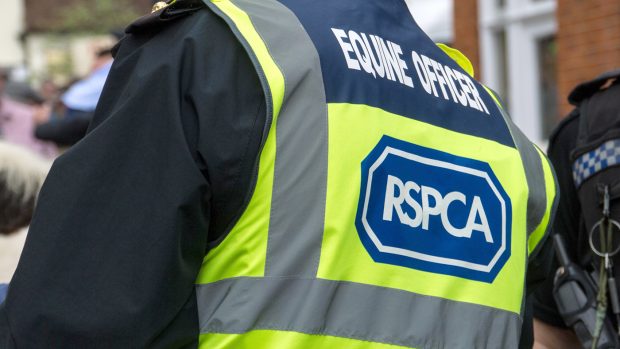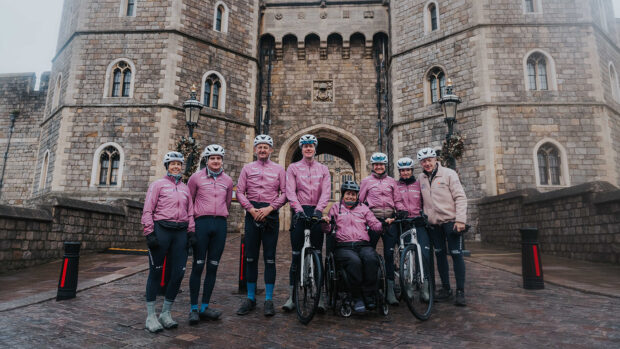The absence of a well-run equine abattoir in Ireland is a “concern” for equine welfare – as there has been an increase in export for slaughter since the only slaughterhouse that took horses closed.
Operations at Shannonside Foods were fully suspended in June, after horrific scenes were revealed in an RTÉ documentary, Horses – Making a Killing (news, 20 June 2024).
Although it has not been suggested that the abattoir should have been allowed to continue operating, the lack of a properly run slaughterhouse – adhering to humane and ethical practices – on the island of Ireland raises other welfare questions.
A spokesperson for the Irish Society for the Prevention of Cruelty to Animals told H&H that the scenes in the documentary were “unacceptable” and that the charity welcomed the Department of Agriculture, Food and the Marine’s (DAFM) decision to suspend the abattoir’s operations.
“But while the slaughter of horses can be a particularly emotive issue for many, it’s important there are readily available and affordable ways to humanely end a horse’s life,” he said.
“If such possibilities are not there, there is an increased risk of horses that are no longer wanted being dumped or abandoned. The ISPCA is calling on DAFM to urgently address the animal welfare concerns associated with this aspect of equine care.”
The spokesperson added that animals destined for slaughter, regardless of species, should be entitled to humane handling throughout transport, lairage and through the slaughter process.
The charity also advocates that humane slaughter be undertaken as near as possible to the place of residence and supports proper training of workers, and the introduction of a licensing system.
A DAFM spokesperson told H&H that there are no indications of any increase in welfare or other issues of concern as a result of the closure of the plant, but the department “continues to monitor the situation”.
“There has been an increase in horses exported directly for slaughter since the closure,” added the DAFM spokesperson.
“There has been engagement with a number of parties as regards reestablishing an equine slaughter plant in Ireland. Those engagements are active and ongoing.”
The spokesperson added that following the RTÉ programme, the DAFM commissioned Professor Patrick Wall to carry out a review focused on issues highlighted and to make recommendations to the minister for agriculture, which has now been completed.
The DAFMs action plan, built on recommendations from the report, recommends facilitating the establishment of a horse slaughter facility this year – and specifies that it “must have a level of oversight that gives a very high level of assurance in relation to the welfare of horses, to include the use of CCTV and oversight of assembly centres supplying horses for slaughter”.
World Horse Welfare chief executive Roly Owers told H&H that even before the documentary and closure of Shannonside Foods, “we know horses were being regularly exported from Ireland for slaughter”.
“Following the closure, the slaughterhouses in the UK have become the closest geographically, so it is not surprising that the number of horses being exported to the UK for slaughter has increased,” he said.
“We understand people can feel uncomfortable with the thought of a horse being slaughtered but we do not oppose humane slaughter as long as it takes place under well-regulated high welfare conditions where distress is minimised – with CCTV in place to help ensure this.
“The horses that are transported for slaughter should also have their welfare protected by ensuring these journeys are kept as short as possible. Something that has been adversely affected by the closure of Ireland’s only equine slaughterhouse.
“The costs of euthanasia and carcase disposal mean that for some owners, slaughter is the only viable option at the end of their horse’s life and if humane slaughter is not available, these horses could end up suffering neglect, abandonment, or being illegally exported to slaughter. So, from our perspective, there is a welfare concern relating to the lack of an abattoir in Ireland.”
- To stay up to date with all the breaking news from major shows throughout 2025, subscribe to the Horse & Hound website
You may also be interested in:

‘We’re delighted to bring loyal readers this benefit’: H&H magazine subscribers get free website access

*Exclusive* Are horses any more traceable since the shocking ‘Horses – Making a Killing’ TV documentary… and what else needs to be done?

Calls for real-time tracking of horses’ locations to ensure Irish equine industry’s future

‘Horses let down in every way possible’: action taken after documentary exposes horrific scenes





